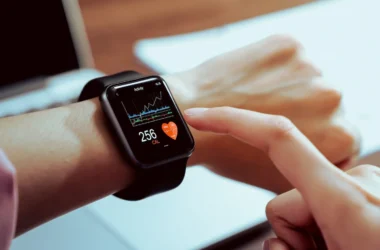Approximately over 650 million adults in the world are affected by obesity and it is a burden to health systems and people and online technologies are now shaping behaviors and influencing decisions. The ability to adopt a healthy habit without the help of others is a difficult one to many people, and online products and services can support where people lack it. These platforms should be used to provide feedback, community, coaching, and data which will keep individuals on track towards achieving their goals.
Tools Tracking and Feedback
Food tracking and activity will provide statistics to the user on his eating and activity levels and numerous applications employ graphs and reminders to keep an individual apprised of the progress. The study on adult health app users in 2023 discovered that almost 2 out of 3 adults using the app recorded meals on the app at least five days every week and users lost a net of 3.5 pounds in three months.
A different report demonstrated that over 45 percent of smartphones owners globally use a nutrition app or pedometer and this segment experienced a 12 percent increase in the number of minutes spent doing exercises daily. These figures imply that individuals have a chance to track the food intake and monitor regularities, which provide them with motivation and enables them to alter behaviors later.
Real Time Alerts
There are tools that can give you a message when you reach a target of calories or salt intake and these publications remind a person to take a smaller portion or reach out to drinking water instead of a sweet drink. Research indicates that on-time warning can boost healthy options by 20 percent during the first week of the use. And these nudges remind individuals of the risk factors so that they would respond before habits fade.
Online Communities and Peer Support
Many people say that they stick with a habit when they know others face the same challenges, and forums and social groups offer daily encouragement and tips. A global health report noted that 80 percent of people in online weight loss groups kept off at least five pounds for six months or more, and more than half of those participants reported feeling more confident in meal planning. Members share recipes, post progress photos, and swap strategies without ever leaving home.
Group Challenges
Some platforms host group challenges that let members compete or cooperate toward a shared target, and those events boost engagement by 30 percent over solo programs. These challenges make healthy habits fun and turn tracking into a social activity. Participants who join a challenge log food and exercise more often, and they report stronger feelings of accountability.
Telehealth Coaching and Virtual Visits

Virtual visits with dieticians and coaches let people connect from any location, and video sessions save travel time and make follow ups easier. Telehealth visits grew by 200 percent between 2019 and 2024, and 75 percent of patients in a recent survey said remote coaching improved their eating habits. Coaches review logs in real time and they can adjust plans on the spot. Regular check ins help maintain focus and prevent people from drifting back to old habits.
Personalized Feedback
Coaches use shared dashboards to view daily logs, and they offer tips on portion control and meal timing. Over a six month period, 68 percent of those who got remote coaching reached their weight targets, compared to 37 percent who used tracking alone. These numbers show that human interaction remains vital even when it happens online.
Gamification and Rewards
Games and rewards add fun to habit building, and many apps give points for each workout or healthy meal. When users earn badges or unlock new levels, they feel a sense of achievement and stay motivated. One survey found that gamified health apps saw a 25 percent higher retention rate after three months, and average weight loss in those groups reached four pounds. Rewards can take the form of virtual trophies or even discounts on gym memberships or healthy food items.
Small Wins Add Up
Breaking big goals into tiny tasks lets people focus on steady progress and helps build confidence. For example, one app set a goal of 10 minutes of activity per day, and 70 percent of first time users met it for two weeks straight. These small wins serve as fuel for harder workouts and for longer term habit changes.
Data Analytics and Personal Plans
Advanced platforms collect data on food choices, sleep patterns, stress levels, and even local weather to fine tune recommendations. Algorithms can suggest meal swaps or workout times that fit each person’s schedule and needs. In one pilot program, 85 percent of participants who got algorithm driven plans improved their body mass index over three months, and 65 percent saw better blood sugar levels. These tools bring math to wellness, and they help each user get advice that fits real world demands.
Privacy and Trust
Users share sensitive information, so apps must protect data with strong encryption and clear policies. Platforms that publish audit results and that let people control what they share tend to win higher trust ratings. In a 2024 survey, platforms with transparent policies earned an average trust score of 4.3 out of 5, while those without clear terms scored only 3.1.
Conclusion
Digital platforms can fill gaps in support, provide timely feedback, connect people with peers and experts, and tailor plans with data. And they can make habit building engaging through games and social challenges. By combining tracking, community, coaching, rewards, and analytics, these tools give people a fighting chance at healthier lives. And as more people adopt these services, health systems may feel less strain and families may enjoy stronger wellbeing overall.









